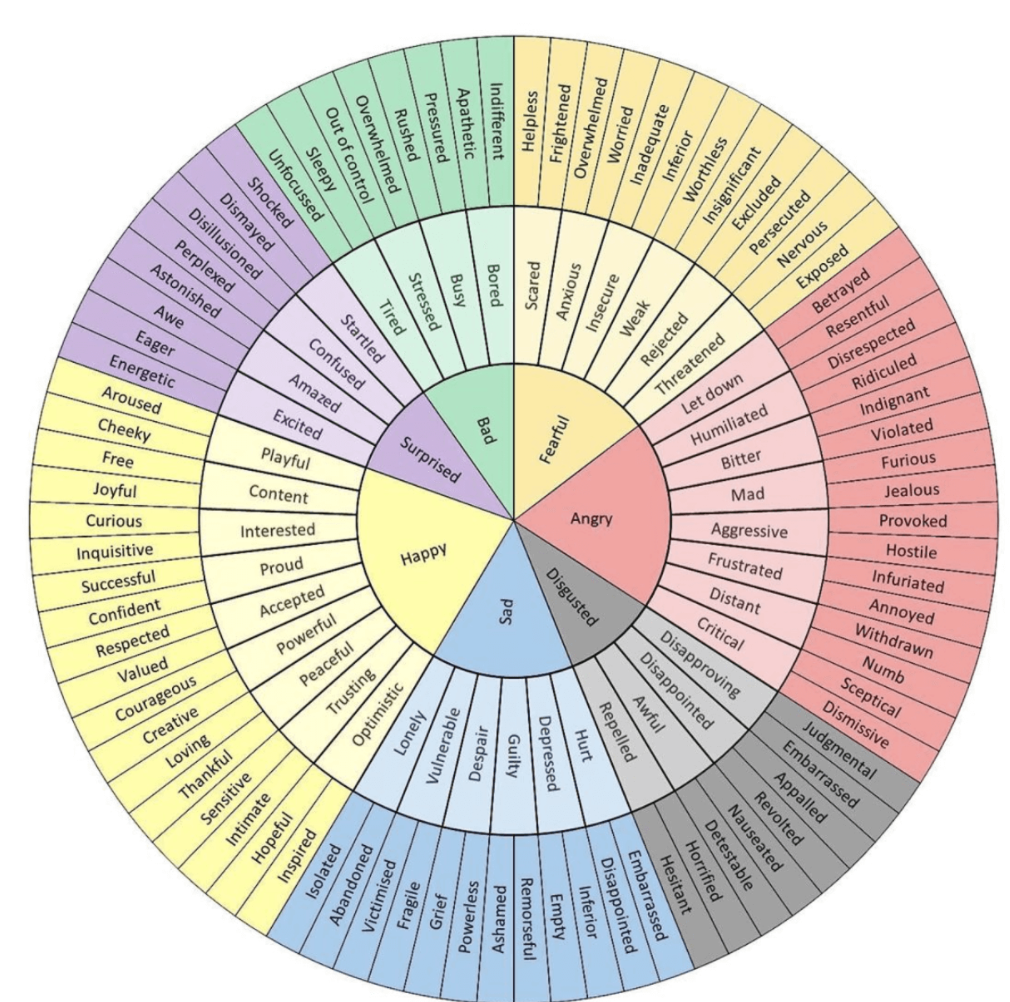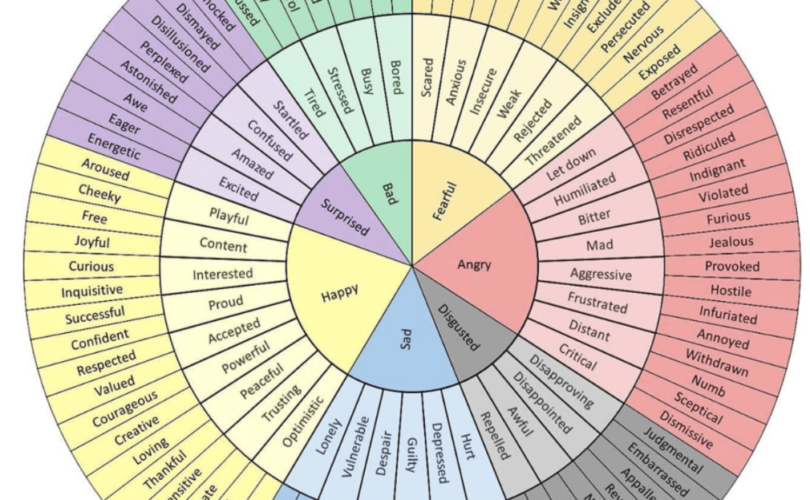
What emotions do you find hardest to name? How has naming your emotions helped you cope better? Let us know in the comments!
Emotions can be powerful forces. They can make us act impulsively or freeze up in stressful situations. But what if we told you that simply naming your emotions could give you more control over them? Naming emotions is a skill that can help you manage how you feel and respond.
Emotions and Their Impact on Your Life
Understanding your emotions can be life-changing. When you don’t know what you’re feeling, it’s easy to let those emotions take over. But identifying them can give you clarity. It’s like shining a light on something you’ve been in the dark about. When you know what you’re feeling, you can deal with it.
Research from emotional intelligence expert Daniel Goleman which i also mentioned in my last blog shows that recognizing and naming your emotions helps with emotional regulation. It creates a sense of control. It also lowers stress by making emotional reactions less overwhelming. You feel less like a victim of your feelings, and more like you’re in charge.
Emotions and Emotional Regulation
Emotional regulation is the ability to manage your emotions in a healthy way. The first step is understanding what you’re feeling. When you can identify an emotion, you can decide how to handle it. For example, instead of letting anger consume you, you can pause and think about the best way to express it.
When you name emotions, it activates the brain’s prefrontal cortex. This helps you think logically rather than reacting impulsively. So, identifying your feelings isn’t just about knowing what’s going on inside; it helps you manage your reactions.
The Connection Between Naming Emotions and Healing
A study from UCLA showed that emotional labeling can reduce the intensity of feelings. When you name the emotion, your brain processes it more calmly, which prevents it from spiraling into anxiety or depression.
By identifying emotions like frustration or sadness, you can take steps to cope with them. The more aware you are of your feelings, the better you can respond in healthy ways. For example, if you identify that you’re feeling overwhelmed, you might try deep breathing or take a break. If you identify sadness, you might talk to someone or journal about it.
Emotions and Communication: How Naming Helps You Connect
Naming your emotions can also improve how you communicate with others. When you can express exactly what you’re feeling, you avoid misunderstandings. Instead of saying, “I’m upset,” you might say, “I’m frustrated because I feel unheard.” This gives others the chance to respond more thoughtfully and with empathy.
In relationships, whether romantic or with friends, knowing your emotions and communicating them clearly can strengthen your bond. You’re less likely to bottle things up, and more likely to address issues calmly and effectively.
Emotions and Coping Mechanisms: Creating Healthier Responses
Naming your emotions opens the door to better coping strategies. Once you understand your feelings, you can choose the best way to deal with them. If you feel anxious, practicing mindfulness or using relaxation techniques might help. If you feel anger, stepping away from the situation or journaling might be the best option.
Cognitive Behavioral Therapy (CBT) also relies on naming emotions. By labeling feelings, you can challenge negative thought patterns and replace them with healthier responses. So, by naming emotions, you get better at responding in ways that benefit you.
Emotions and Emotional Vocabulary: The Power of Specificity
Having a broader emotional vocabulary is key to naming emotions accurately. Instead of just saying “I feel bad,” try to be more specific. Are you feeling stressed, overwhelmed, or disappointed? When you can pinpoint the exact emotion, you can better understand its cause and how to deal with it.
For example, frustration is different from anger. Disappointment is different from sadness. The more specific you can be, the easier it will be to address the emotion. People who use a wide range of emotional words and can identify how they feel,tend to manage them better aswell.
How to Start Naming Your Emotions
Naming emotions takes practice, but you can start small. Here’s how:
- Tune into Your Body: Your body often gives you clues about what you’re feeling. If your heart is racing, you might be anxious. If you feel tight in your chest, it could be stress. Pay attention to these physical signs.
- Use Emotion Lists: Sometimes it’s hard to figure out exactly what you’re feeling. An emotion wheel or list can help. They categorize feelings and can make it easier to pinpoint what’s going on.
- Reflect and Journal: Writing about your emotions is a great way to explore them. Try asking yourself: “What happened before I started feeling this way?” or “What am I really feeling?”
- Talk to Someone: Sometimes, sharing your emotions with a friend or therapist can help you name them. They may offer a new perspective, or simply letting it out can make it easier to process.
The Power of Naming Emotions
Naming your emotions is one of the most powerful tools you can use. It’s not about labeling your feelings to suppress them, but about understanding them so you can respond in healthier ways. When you can name what you’re feeling, you gain control. You’re able to regulate your emotions, communicate more effectively, and cope in healthier ways.
So, next time you’re feeling something intense, take a moment to identify it. Is it anxiety? Sadness? Frustration? By naming it, you can start to move forward and take charge of your emotional world.








“Your writing style is engaging and clear, love it!”
Thank you so much for your kind words! I’m so glad you enjoyed the writing style.Feel free to reach out if you have any more thoughts or questions – I’m always happy to chat! 😊
Back Magazin I’m often to blogging and i really appreciate your content. The article has actually peaks my interest. I’m going to bookmark your web site and maintain checking for brand spanking new information.
It means a lot to know that the content resonates with you. Feel free to reach out if you have any more thoughts or questions – I’m always happy to chat!
[…] of Emotional Intelligence, define self-awareness as the ability to recognize and understand your emotions, motivations, and behaviors. But it’s not just about knowing yourself; it’s about using that […]